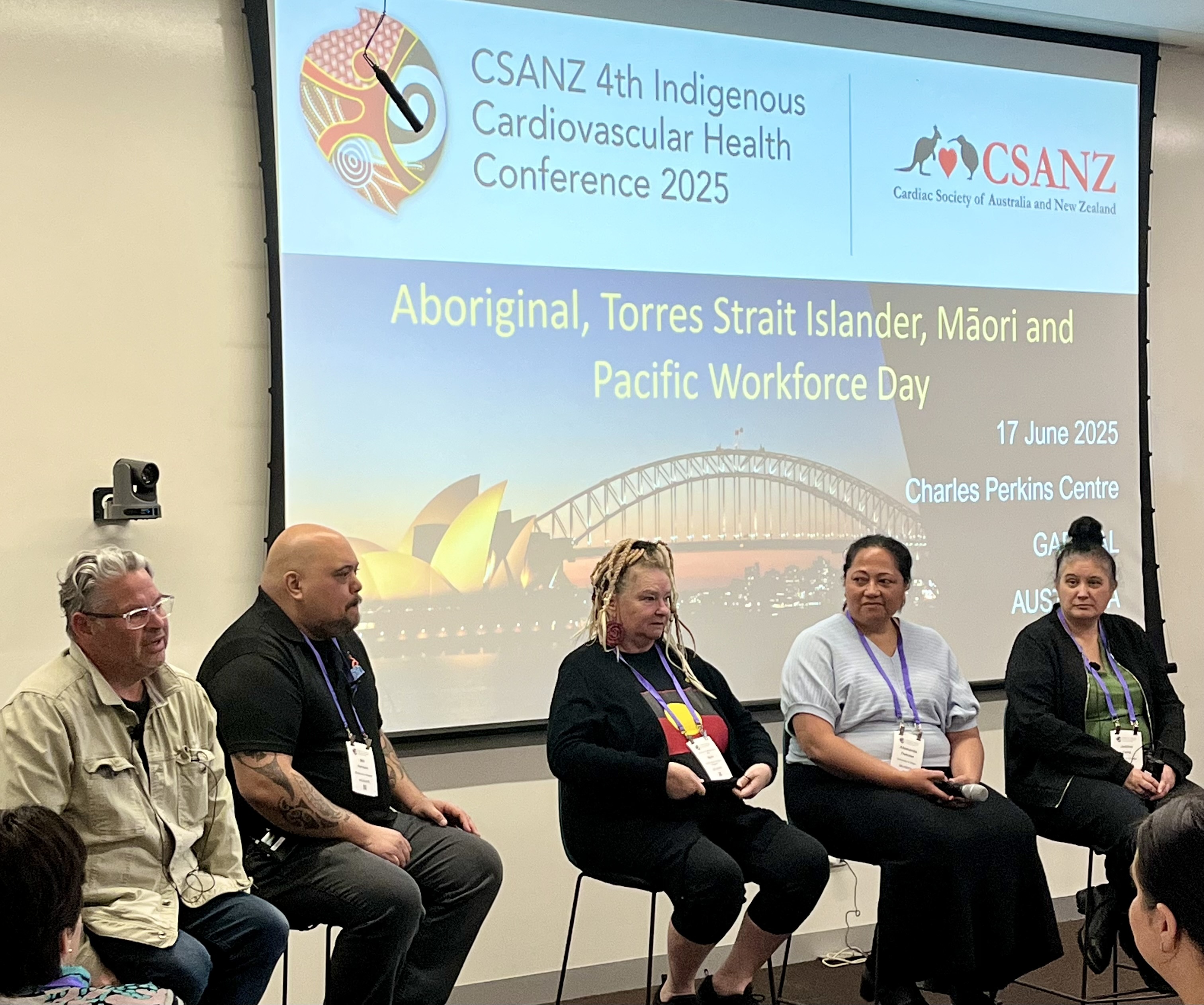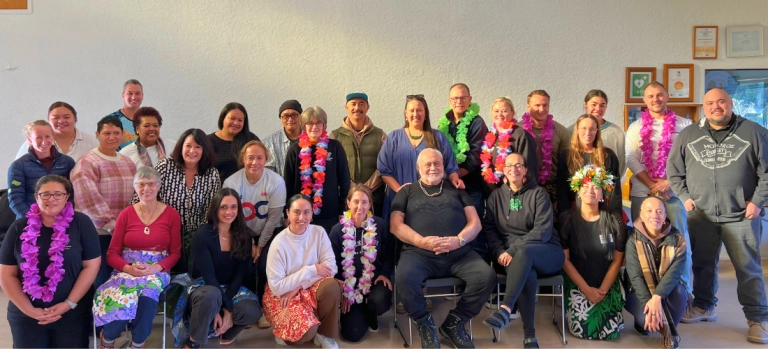Healing Hearts, Honouring Culture: New Network Uplifts Māori, Pacific, Aboriginal and Torres Strait Islander Heart Health Workforce
Tuesday, 24 June 2025 | Rotorua, Aotearoa New Zealand
Māori and Pacific peoples face some of the highest rates of heart disease in Aotearoa New Zealand—yet remain significantly underrepresented in the health workforce. A groundbreaking initiative, Te Whare Tukutuku, is weaving connection, culture, and care into the heart of cardiology. For the first time this year, the kaupapa extended across the Tasman to Australia, bringing together Indigenous peoples from both nations.
The Challenge
Despite making up a substantial portion of Aotearoa’s population, Māori and Pacific peoples are severely underrepresented in the medical workforce. Māori doctors comprise just 4.7% and Pacific doctors just 2.3% of the total, a disparity that fuels systemic inequities and professional isolation.
At the 2025 Te Poutoko Ora a Kiwa research symposium, Director of Public Health Dr Corina Grey said:
“Pacific Peoples make up 9% of the population but only around 5% of nurses, 3% of midwives, doctors and pharmacists, and just 2% of psychologists and dentists. Not one of these workforces reflects a representative proportion of Pacific peoples.”
Workforce forecasts from Te Whatu Ora, New Zealand’s national health agency, show only modest gains over the next decade, far short of what is needed for true equity.
A Cultural Response to a Systemic Issue
In response, the New Zealand Division of the Cardiac Society of Australia and New Zealand (CSANZ) launched Te Whare Tukutuku—a dedicated network for Māori and Pacific heart health professionals and researchers. Co-founded in 2022 by Dr Anna Rolleston (Director at the Centre for Health), cardiologist Dr Wil Harrison, and Dr Grey, the initiative is now in its third year of fostering connection, strength, and collective healing.
Dr Rolleston said a group of Māori and Pacific colleagues and friends initiated Te Whare Tukutuku three years ago.
“We were sharing our challenges and decided it was really hard to look after ourselves while working in contentious spaces. We decided to get the Māori and Pacific health workforce together so that we could have the collective look after us”.
Dr Harrison, Interventional Cardiologist at Middlemore Hospital, felt that the traditional heart health workforce networks weren’t capturing Māori and Pacific health professionals as well as they could.
“The Cardiac Society is traditionally limited to cardiologists and those with PhDs, but many of our Māori workforce are not in those roles yet. It’s vital that we have a forum for those voices to be heard, without fear of consequences. Te Whare Tukutuku does that.”
Professor Martin Stiles, Chair of CSANZ’s NZ Division, added:
“Having a dedicated day for the Māori and Pacific workforce to get together and discuss how to empower each other and our colleagues to address the complex issues facing the Aotearoa health system is invaluable.”
Representation Saves Lives
The need for culturally aligned care is urgent. Māori are twice as likely to die from heart disease as non-Māori, and Pacific peoples are at even greater risk. A representative workforce helps dismantle barriers to care, challenge institutional racism, and rebuild trust in the health system.
“When Māori are looking after Māori, outcomes are better,” said Dr Harrison.
“It’s also vital for our rangatahi to see themselves represented in health roles,” added Professor Stiles.
The government-funded Pūtahi Manawa – Healthy Hearts for Aotearoa New Zealand Centre of Research Excellence is actively supporting this shift, having invested over $797,000 in equity-focused education in 2023–2024 alone:
- $567,000 for 63 Māori and Pacific students undertaking summer research projects
- $230,000 in scholarships and tuition support for seven postgraduate Māori and Pacific students
“Māori and Pacific kaimahi are vital in the heart health space. Shared cultural backgrounds between patients and providers make a real difference,” said Dr Karen Brewer, Co-Director Māori at Pūtahi Manawa.

Collaboration Across Moana and Country
For the first time, Māori, Pacific, Aboriginal and Torres Strait Islander heart health researchers, students and professionals came together to share knowledge and cultural connection, supported by CSANZ and led by Te Whare Tukutuku. Seventy-seven people attended the inaugural get-together on 17 June at the University of Sydney to become a unified collective of indigenous peoples supporting each other.
“There’s so much shared experience and connection between us as peoples of land and sea,” said Associate Professor Vicki Wade (Noongar), who attended both the Rotorua and Sydney events.
“Being out in the community with my people – that’s how I stay spiritually well in this tough space.”
The workforce day preceded the Cardiac Society of Australia and New Zealand’s 4th Indigenous Cardiovascular Health Conference, 18-19 June, Gadigal Country - Sydney.
Join the Network
To learn more or become a member of the Indigenous Cardiovascular Workforce Network, contact:
📧 erina@thecentreforhealth.co.nz
Media Contact:
Tracey Kellett
Communications and Marketing Advisor, Pūtahi Manawa
📧 tracey.kellett@auckland.ac.nz



